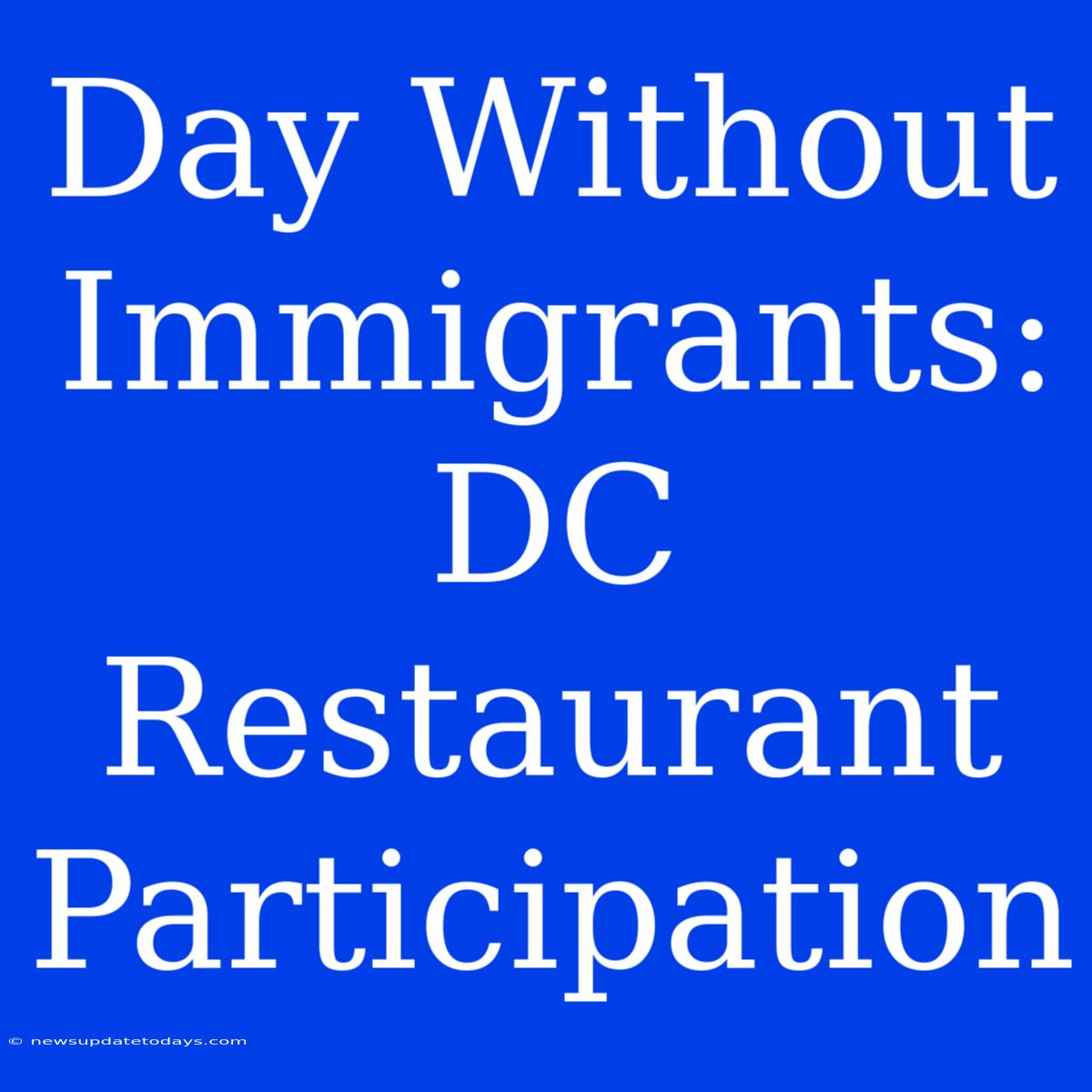Day Without Immigrants: DC Restaurant Participation – A Look at the Impact
The Day Without Immigrants (DWI) is a powerful demonstration highlighting the contributions of immigrants to the American economy. While the movement has seen varying levels of participation across the country, its impact on the restaurant industry, particularly in diverse cities like Washington, D.C., is significant. This article explores the participation of DC restaurants in DWI and analyzes the consequences, both intended and unintended.
Understanding the Day Without Immigrants
The Day Without Immigrants is a national day of action where immigrants and their allies abstain from work, school, and shopping to demonstrate the vital role immigrants play in American society. The movement aims to raise awareness about immigration policies and their impact on immigrant communities. Its success depends heavily on participation, especially in industries with a high concentration of immigrant workers, like the restaurant sector.
DC Restaurants and the Day Without Immigrants: A Mixed Bag
Washington, D.C., with its diverse population and vibrant culinary scene, offers a unique case study. While some DC restaurants fully embraced the spirit of DWI, closing their doors in solidarity, others remained open, citing economic constraints or differing perspectives on the movement.
<h3>Factors Influencing Restaurant Participation:</h3>
- Immigrant Workforce: Restaurants with a largely immigrant workforce faced a difficult decision. Closing could mean significant financial losses, while staying open could be seen as undermining the movement's message.
- Community Support: Restaurants that received strong community support, particularly from immigrant communities, were more likely to participate.
- Business Ownership: The owner's personal stance on immigration reform heavily influenced the decision to participate or remain open. Some owners, themselves immigrants, felt a strong connection to the cause.
- Economic Considerations: The financial realities of closure, especially for smaller businesses, played a significant role. Many restaurants operate on tight margins, and a day of closure could be devastating.
The Impact and Consequences
The impact of DWI participation on DC restaurants varied. While some experienced immediate financial losses, others saw an opportunity to engage in meaningful conversations about immigration with their customers. The day also highlighted the essential role immigrants play in the city's food service industry and beyond.
<h3>Long-Term Effects:</h3>
- Increased Awareness: DWI, regardless of individual restaurant participation, raised awareness about the importance of immigrant contributions to the DC economy.
- Community Dialogue: The event sparked important conversations within communities about immigration policies and their impact on local businesses.
- Economic Vulnerability: The event underscored the economic vulnerability of many small businesses reliant on immigrant labor.
Conclusion: A Call for Continued Dialogue
The Day Without Immigrants in Washington, D.C., provided a snapshot of the complex relationship between the restaurant industry, immigrant workers, and immigration policy. While the levels of participation varied, the event undeniably highlighted the crucial role immigrants play in the city's economy and spurred conversations about important social and economic issues. The ongoing dialogue around immigration reform and its impact on businesses and communities remains essential. Further research into the long-term consequences of DWI on the DC restaurant industry would offer valuable insights into the economic and social effects of large-scale social actions.

